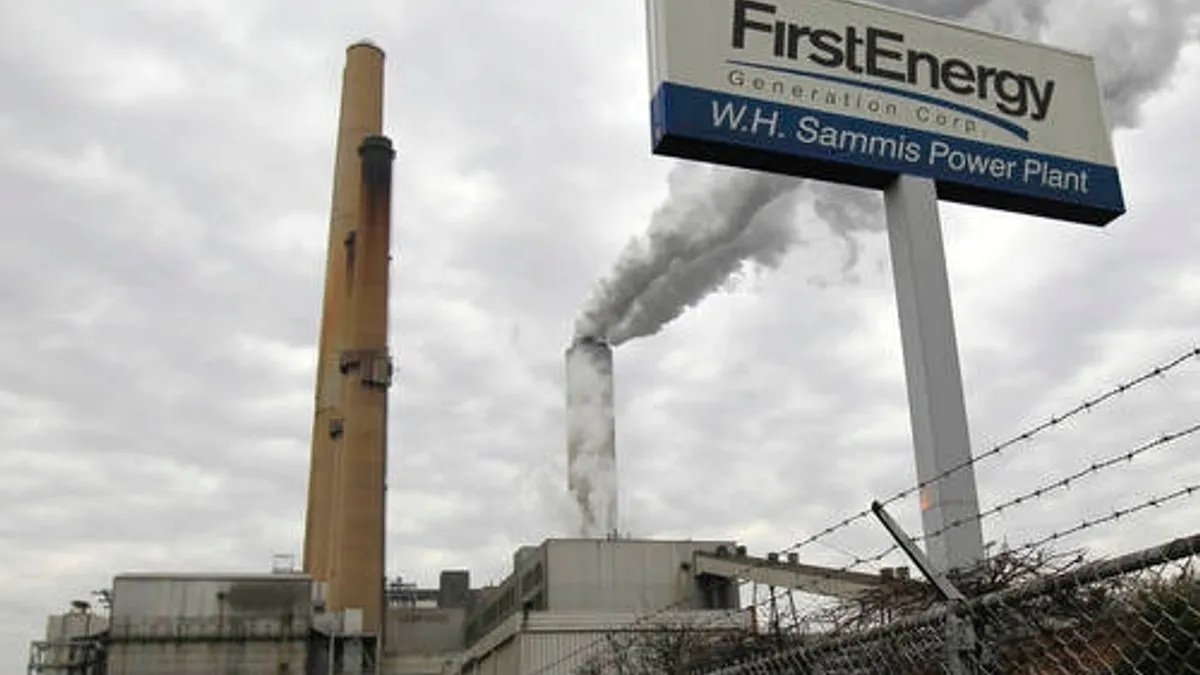Dive Brief:
- A broad coalition of natural gas, renewable energy and energy efficiency groups wrote to Energy Secretary Rick Perry on Tuesday, urging him to reject a call to bail out coal and nuclear plants in the PJM Interconnection requested by generator FirstEnergy.
- FirstEnergy argues the retirement of such plants constitutes a grid emergency, but the groups wrote that "no such finding can be credibly made" and that DOE's legal authorities outside emergency conditions "do not empower [it] to provide the long term out-of-market price support that the coal and nuclear plant owners seek."
- The groups also challenged a proposal from Sen. Joe Manchin, D-W.Va., to use the Defense Production Act, a 1950s wartime law, to keep coal plants online, writing that it does not allow the government to "set prices" or "force market participants to buy products or services they do not wish to buy."
Dive Insight:
Requests for emergency assistance from FirstEnergy and Manchin have the potential to upend PJM, the nation's largest electricity market.
The requests come months after the Federal Energy Regulatory Commission rejected a similar bailout proposal from the Department of Energy. While it was under consideration, former FERC regulators expressed concern that moving a large number of generators to cost recovery could "blow up" the wholesale power markets.
The FirstEnergy request is broader than that plan, however. In March the generator argued DOE should provide cost recovery to all coal and nuclear facilities in PJM for four years, saying the retirement of some of those facilities constitutes a grid "emergency."
A broad swath of energy groups sought to counter that narrative in a lengthy legal analysis sent to DOE on Tuesday, noting that PJM says reliability of its grid is not threatened by retirements in the near future.
"[T]he orderly retirement of power plants in PJM will unfold over a period of years and in the context of ample supply of generating capacity," groups wrote. "There is no "emergency" that could serve as the basis for using the Department's authority under Section 202(c)."
The letter also takes aim at Manchin's proposal to use the Defense Production Act, a 1950s law that allows the DOE to nationalize power infrastructure in wartime, to bail out coal generators.
"[A]s broad as it is, the Defense Production Act is not broad enough to do what the supporters of these uneconomic power plants would like," they wrote. "The Defense Production does not allow the government to set prices. Nor does it allow the government to force market participants to buy products or services they do not wish to buy."
The letter was signed by Advanced Energy Economy, the American Petroleum Institute, the American Wind Energy Association, the Electric Power Supply Association, the Interstate Natural Gas Association of America, and the Natural Gas Supply Association.
It remains unclear if or when the DOE will respond to the emergency requests. Last month, DOE Assistant Secretary Bruce Walker told Utility Dive the agency's evaluation of the requests is broader than only issues of grid reliability, saying that grid operators may not "have the visibility or the proper information to determine if something is a national security issue."













